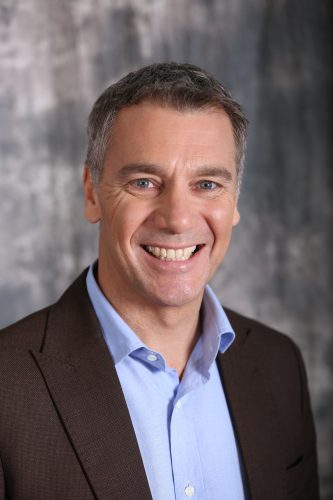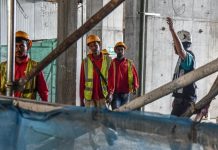Singapore-based Cooling as a Service (CaaS) pioneer Kaer has expanded its portfolio in Asia, by clinching an over RM160 million (over S$50 million) projects with The Exchange TRX in Malaysia for a tenure of 15 years.
The Exchange TRX is a 17-acre new lifestyle destination that sits at the heart of the city defining Tun Razak Exchange, Malaysia’s new central business district.
The Exchange TRX is Lendlease’s largest development in Asia featuring a lifestyle retail destination crowned by an activated 10-acre rooftop park, six premier residential towers, a low-rise campus style office and Malaysia’s first Kimpton Hotels & Restaurants.
Kaer’s CaaS offering will deliver a best-in-class customer experience alongside platinum levels of sustainability to support the development’s Green Building Index’s rating. The sustainable model will minimise carbon emissions and will eventually run on 100 percent recycled water produced in the local area.

Justin Taylor, CEO, Kaer said: “The Exchange TRX is one of Malaysia’s most progressive developments and is set to become a leading lifestyle hub in Asia.
“After a wonderful experience with Paya Lebar Quarter in Singapore, this is a big opportunity for us to learn and build on what we have done to maximise building performance and reduce the environmental footprint.
“Demand for cooling continues to grow and will triple by 2050. There is an urgent need for businesses to adopt cleaner and more sustainable cooling options like CaaS. As we work towards driving CaaS as the model of choice for Asian economies, we are happy to count Lendlease as a partner who shares our mission to accelerate the transition towards a low carbon and climate-resilient future.”
Mitchell Wilson, project director of The Exchange TRX adds, “As a future-ready development within Malaysia’s International Financial District, The Exchange TRX is conceived as a thriving world class sustainable precinct.
“Aligned with Lendlease’s Global Mission Zero ambitions of achieving Net Zero Carbon by 2025, the deal with Kaer strengthens our position as a business that goes above and beyond to pioneer new standards for sustainable developments in Malaysia. Beyond providing cost benefit and operational support, Kaer’s CaaS offering is another innovative way of collaborating with our tenants and customers for long term energy savings.”
With a contracted pipeline of projects worth over US$250 million (S$342 million), Kaer’s CaaS model delivers cooling systems to support commercial and industrial building operations. With a commitment to renewable energy and sustainable operations, Kaer’s CaaS model saves over 25,000 metric tonnes of carbon dioxide (CO2) every year for its customers and has moved many onto 100 percent renewable energy for their cooling including INSEAD Business School in Singapore and 1Elpro Business Park, a mixed-use development in India.
Traditionally, building owners purchase, install and run cooling systems, with high upfront costs, along with ongoing maintenance and operational costs. Under the CaaS model, customers simply dictate the cooling conditions they require and Kaer delivers that as and when needed by the building.
Kaer assumes all financial investments and operational responsibilities while building owners buy cooling at a fixed $/RTH (Refrigerant Ton Hour) rate on a pay-as-you-use basis.
Kaer’s CaaS model better positions buildings to qualify for green accreditations such as the Malaysian Green Building Index, in addition to Singapore’s Green Mark and Leadership in Energy and Environmental Design (LEED) certifications by the U.S. Green Building Council (USGBC).
Kaer and Lendlease first collaborated in 2013. In 2017, they partnered on a S$50 million project to deliver sustainable cooling for Paya Lebar Quarter in Singapore.
The latest partnership is in line with Malaysia’s pledge to reduce its emissions intensity by 45 percent of GDP by 2030 compared to a 2005 baseline and achieve carbon neutrality by 2050.
Kaer is aggressively growing across Asia, supporting the rising demand for sustainable cooling driven by rapid urbanization and climate change amid international calls for a carbon resilient future. It recently expanded to six major cities in India to support the growing demand commercial and industrial cooling within the region.














